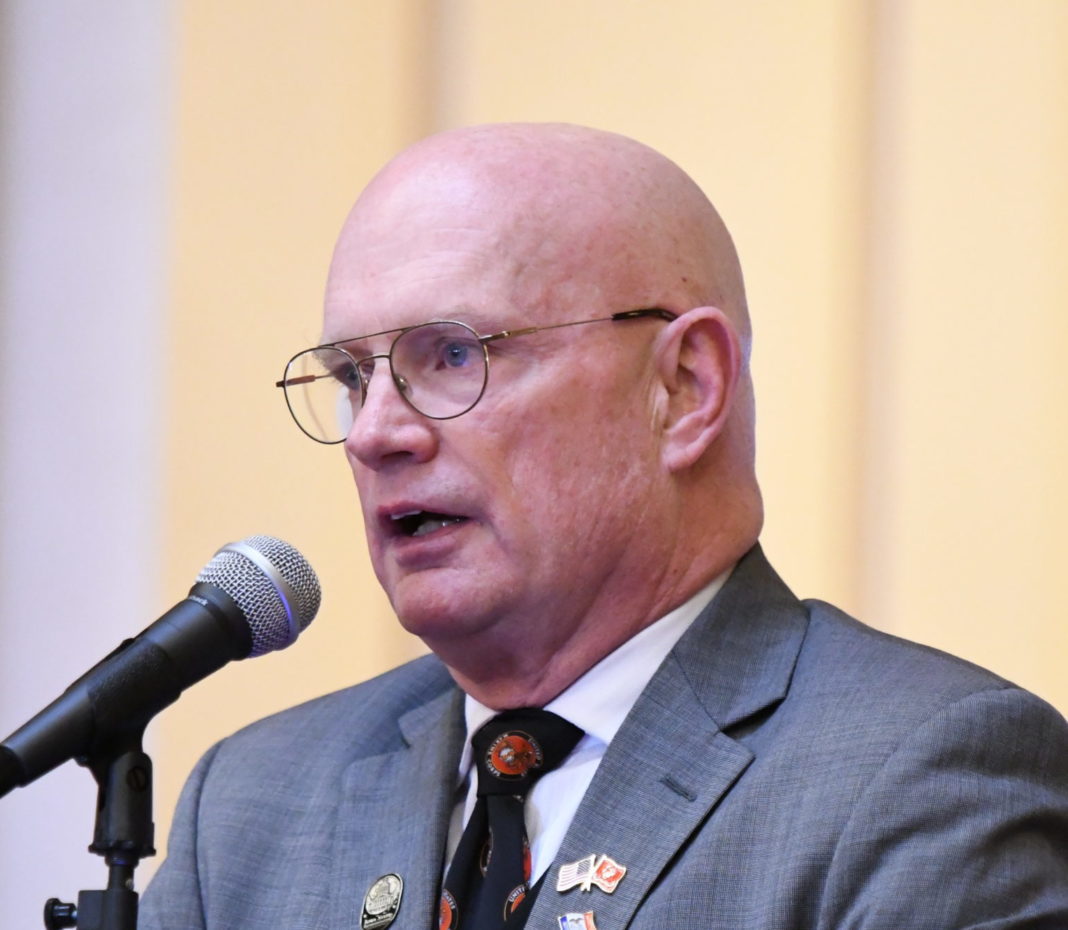In a number of areas across Iowa, the proper use of eminent domain has become a huge point of discussion as a result of the proposed multi-state CO2 pipeline projects. The route of these pipelines in Iowa would impact thousands of Iowans, a great deal of farmland and many of our communities.
Thomas G. West, a Professor of Politics at the University of Dallas and a Senior Fellow of the Claremont Institute, stated for the Heritage Foundation, “Sometimes government needs to take private property for such purposes as roads, public buildings, and military bases. The Fifth Amendment of the Constitution provides, “nor shall private property be taken for public use, without just compensation.” Besides the “just compensation” limit, in both the state and federal constitutions, government could take property only for “public use.” Government was therefore forbidden, as one federal court stated, to “take land from one citizen, who acquired it legally, and vest it in another.” Today, it is routine, as famously shown in the Kelo case, for government to take property from one person and give it to someone else who is expected to pay more taxes, create more jobs, or build more attractive buildings.”
The Kelo case referenced by Professor West was a U.S. Supreme Court case that many conservative legal scholars believe was decided incorrectly by a liberal court, and it opened the door for the seizure of private property by eminent domain for economic development purposes as opposed to essential government services. The Kelo ruling effectively confused the proper use of eminent domain between “public use,” which had always been the standard, and “public benefit.”
The Kelo decision has resulted in private‐public collusion against private property rights since government can condemn private property for the benefit another private user. This helps explain the situation currently underway in Iowa.
My concern is that if public benefit is to be the standard, as opposed to public use (essential government services), then private property becomes meaningless in our country, and no one can be secure in their property.
One of our most fundamental principles of liberty as Americans is the right of private property, and I will go on record right now saying that I believe eminent domain should only be used for essential government services, and the CO2 pipeline does not meet that definition. This pipeline is not an essential government service for public use, but rather it is a private economic development project. I do not believe that the blunt force of government should be allowed to be used by private individuals seeking eminent domain to seize other people’s property for their own economic benefit.
I have been working for months with my local county supervisors, with Representative Bobby Kaufmann, who is a champion for private property rights, with Speaker of the House Pat Grassley, with Senator Jeff Taylor in the Senate, and with the Iowa Farm Bureau, to come up with meaningful protections for the private property rights of landowners that were there first and do not want eminent domain used to force this pipeline through their property. The intent of this legislation, HF368, is not to stop the pipeline, but rather to take the realities of the moment into consideration as we attempt to enact into law meaningful and commonsense protections for our landowners.
HF368 has these nine major requirements:
- It tells the Iowa Utilities Board that they will not grant a permit for a CO2 pipeline unless the project is in compliance with existing zoning ordinances, and that the pipeline company must have acquired all local county zoning permits. This is important because it is local county officials who are closest to the people and who are most responsible for their citizens.
- It mandates that before a company can seek eminent domain, it must first acquire at least 90% of the pipeline route miles in the state through voluntary easements. While I do not believe that eminent domain is appropriate for this project, this requirement does allow for a path to success for the pipeline companies even though the bar is high and is in keeping with recommendations by the Iowa Farm Bureau.
- Requires the CO2 pipeline companies to submit regular progress reports on easement acquisition. This helps ensure accountability.
- Prohibits the Iowa Utilities Board from issuing a permit for a CO2 pipeline until the new safety guidelines are issued by the Federal Pipeline and Hazardous Materials Safety Administration. A CO2 pipeline recently failed in another state following a flood, and many of our residents are concerned about the safety of the pipeline. It is prudent and appropriate to have these new guidelines in place before proceeding.
- Requires a pipeline company seeking the use of eminent domain for a multi-state pipeline project to successfully acquire all applicable out-of-state pipeline construction and zoning permits for all the other states the pipeline will go through prior to being granted a permit to construct the pipeline in Iowa. Why would we want construction of this pipeline to take place in Iowa, and have our valuable farmland disrupted, if it ultimately is never completed?
- Allows a landowner to file a complaint with the IUB and to notify the relevant County Board of Supervisors of a violation of land restoration standards. This is to ensure accountability for the pipeline companies and protections for our landowners.
- The bill expands damages that can be compensated for under Code Section 479B.29 to include soil compaction, damage to soil or water conservation structures, and damage to irrigation or drainage systems. Again, this is to ensure accountability for the pipeline companies and protections for our landowners.
- The bill further expands the claims a landowner can bring to include any identifiable loss resulting from pipeline activity. Once again, this is an important protection for our landowners.
- It allows that a landowner may file an action of relief in either small claims or district court. As I have stated over and over, this is about our landowners, who were there first.
There are those in the ethanol industry and in renewable fuels who believe this pipeline project is vital for their economic survival. I have always supported legislation and initiatives to support renewable fuels, ethanol and our corn growers, and I will continue to do so. I of course am concerned about our ethanol industry, but as I said to those in the renewable fuel lobby when I met with them on this issue; I have no problem with the pipeline, but it needs to be built through voluntary easements, and not by using the blunt force of government to take other people’s property to do it.
Ads have now appeared attacking the Farm Bureau for supporting HF368. The ads accuse the Farm Bureau of joining with the Sierra Club to destroy agriculture. These ads reflect exactly what is wrong with politics in America today. They are incredibly misleading, engage in character assassination through association and never tell the viewer or listener about the eminent domain issue or the issues so many are concerned about. The Farm Bureau, in spite of many of their members being on different sides of this issue, has taken a principled stand in support of private property rights, and should be applauded.
I will say again, I have no issue with the pipeline, but rather with the tactics of those behind it who seek to conveniently use the power of government to take the property of others. For me, the right and wrong here could not be more clear. Our constitutional protections are not for sale to the highest bidder.












